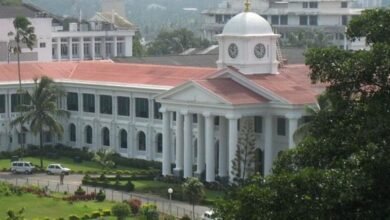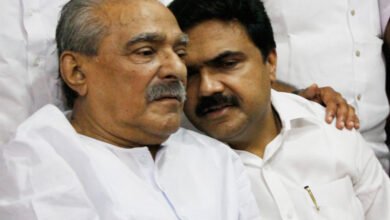
Thiruvananthapuram: IAS Officer Prasanth has sparked a vital conversation on World Mental Health Day, emphasizing that mental health struggles spare no one—from doctors, teachers, and laborers to politicians, judges, and ministers. In a poignant Facebook post, he called for equal attention to the psychological well-being of both those in power and the citizens living under their governance.
The officer, who studied psychology as an optional subject for the Civil Services exam, highlighted the immense, often-hidden stress faced by administrators and political leaders. He pointed out the endless work hours, public scrutiny, ethical dilemmas, and the pressure to maintain an image of infallibility.
“While annual physical check-ups are mandatory for officers, there are no equivalent mental health screenings,” Prasanth noted. He lamented the lack of structured counseling, stress-reduction measures, or proper support systems, which often leads to severe mental health issues being suppressed and hidden.
The Cost of Unaddressed Stress in Leadership
Prasanth stressed that his intention isn’t to assign blame but to initiate a crucial correction. Even the most capable leaders can suffer from severe burnout, anxiety, age-related mental issues, or emotional exhaustion. When these issues go unchecked, they can lead to erratic decision-making, a loss of empathy, and a heavy burden on the entire administrative system.
He candidly shared that he has seen “textbook cases” of abnormal psychology from his student days among officials in government. “The tragic irony is that the very power that brings them to the top is what prevents them from getting the necessary treatment and care,” he stated.
Ripple Effect on the Public
The consequences of an unhealthy mind in a position of authority are far-reaching. The officer detailed how ordinary citizens, subordinates, and families bear the brunt of this “invisible problem.” A harsh word, an ill-considered policy, an unjust transfer, harassment, or delayed decision-making—all exact a significant human cost.
Prasanth urged for a compassionate and visionary administrative structure, starting with the internal well-being of the rulers. He listed concerning behaviors—such as extreme cruelty, a propensity for unrepentant wrongdoing, excessive greed for wealth and power, extreme selfishness, and lack of compassion—as potential symptoms of underlying psychological issues.
To foster effective governance, he proposed that timely mental evaluations, counseling facilities, and a culture that values emotional balance as much as efficiency must become the “DNA of public service.”
“Leadership begins with self-awareness, and those in power also need support,” Prasanth concluded, extending his wishes for mental health to all.







